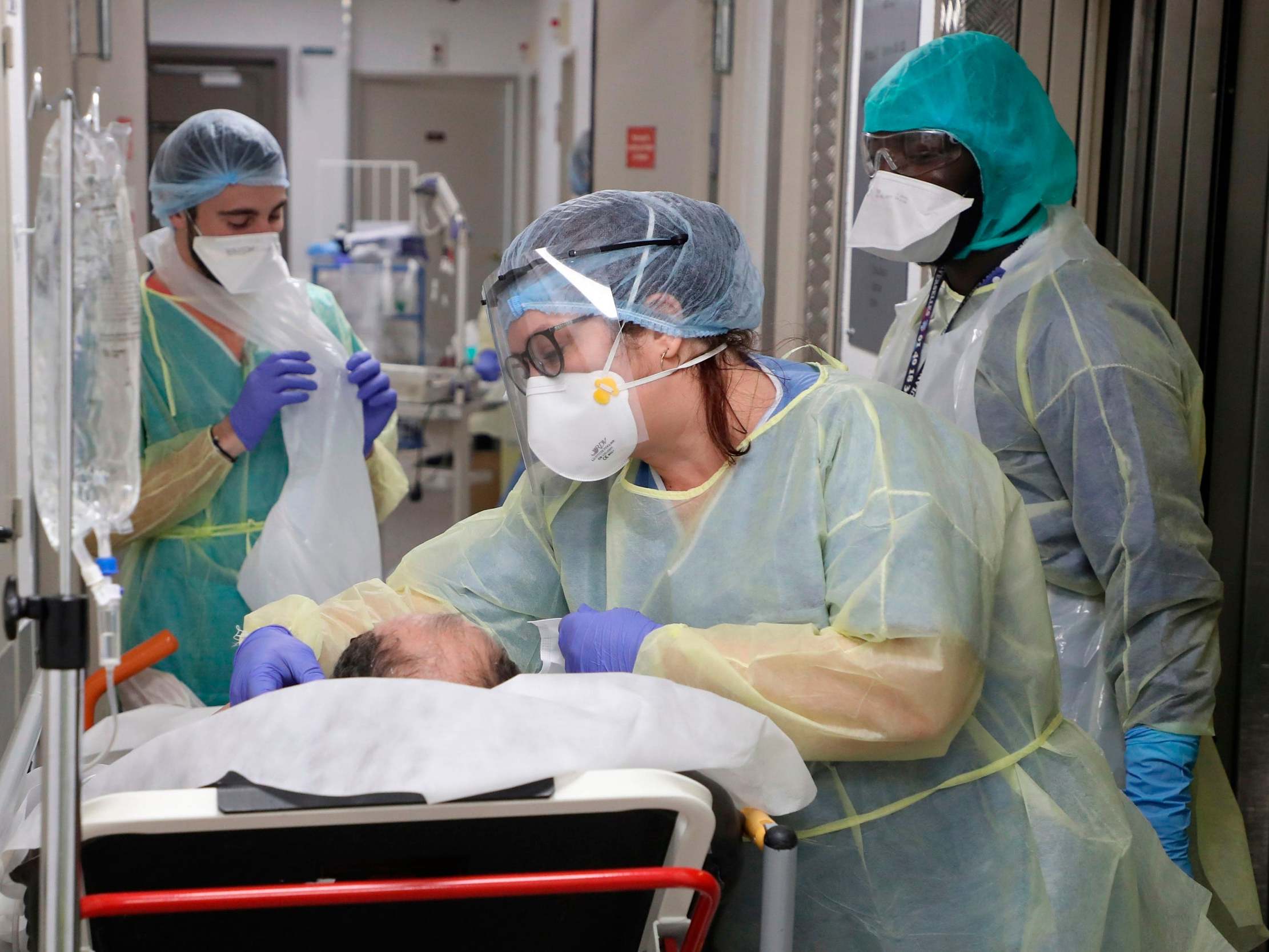The UK will lead the global coronavirus response to end this pandemic sooner
By stopping a pandemic from turning into a long-term humanitarian disaster it will not just save lives but will help end the global spread of this disease sooner, writes Anne-Marie Trevelyan


As we applaud our NHS heroes at 8pm every Thursday, I am proud to see our country pull together like never before in my lifetime.
As well as our doctors and nurses, we should celebrate everyone who is helping to provide vital services during this unprecedented time – like care-givers, delivery drivers and people working in supermarkets to ensure we have food on our tables. Like the volunteers responding to the call for extra support and everyone staying at home to save lives.
Britain is far from alone in facing the consequences of coronavirus. All over the world we are seeing the impact that this pandemic is having on health and livelihoods.
Confronting a virus that respects no borders means we need a global response to a global pandemic. If we are to keep the world – including the UK – safer, healthier and more stable – we are absolutely right to use UK aid to tackle these issues at an international level.
We should be proud of the UK’s record in tackling extreme poverty and saving lives. We were central to tackling the recent Ebola outbreak in central Africa, helping develop the vaccine that has protected over 300,000 people from infection.
UK researchers have also developed seven vaccines for different strands of measles, and we have helped immunise tens of millions of the world’s poorest people from preventable diseases.
In recent weeks, Britain has invested £250m in the international effort to find a coronavirus vaccine. Our donation to the Coalition for Epidemic Preparedness Innovations (Cepi) is the biggest of any country and thanks to this investment, future vaccines will be made available at the lowest possible price to the NHS and other countries’ healthcare systems.
Back home we are doing whatever it takes to prepare and support our NHS to deal with the rise in cases. But in many developing countries, the pandemic risks pushing their already fragile healthcare services well beyond breaking point. In some places, already scarred by recent conflict and humanitarian disasters, it risks longer-term economic consequences that will have knock on effects for the whole world.
We can’t end this global pandemic or prevent even more deaths, including in the UK, if we don’t help those countries respond to the virus and its impacts.
Failing to do so would allow mass infections which would be almost impossible to bring under control, and could lead to future waves of infection coming to our shores later in the year. This could risk all of the work we are doing in the UK and threaten our country in the future.
That is why I have just announced £200m of new UK aid funding to help developing countries fight this deadly outbreak, respond to its impact and stop its further spread, including to the UK.
£130m of this support will go towards the United Nations appeal launched earlier this month, including £65m to the World Health Organisation (WHO), which is coordinating international efforts to slow infections and save lives.
Among those least able to protect themselves, refugees are among the most vulnerable – often living in close quarters without access to proper healthcare or shelter. Bangladesh for example hosts 850,000 Rohingya refugees, many in crowded and unsanitary camps where social distancing and regular handwashing are almost impossible.
It doesn’t take much imagination to picture the devastating effects this virus could have in places like this.
Even where people have not fled violence there is huge risk. In Yemen for example, as a result of civil war, 80 per cent of the population are in need of humanitarian assistance to survive while barely half of health facilities remain operational. So we will give a further £50m to the International Red Cross to help people living in the most difficult to reach and war-torn parts of the world.
Another £20m will go to UK charities and other organisations which are using British expertise and experience to deal with coronavirus.
Since the pandemic began, we have committed £744m to tackle it globally. We’re not doing this alone, and I’ve been speaking to my counterparts in other governments to ensure all our support is being targeted where it’s needed; to stop the spread.
But it is not just about committing new money from the aid budget to tackle the virus. We are urgently redirecting existing support to be more responsive to coronavirus by reallocating our humanitarian spending to tackle infections and ensuring that our economic support through organisations like the World Bank and International Monetary Fund (IMF) is being targeted at the countries most at risk of economic collapse because of the pandemic.
Coronavirus is the biggest crisis affecting the world right now, but our ability to protect the British public from a second deadly wave will only be effective if we strengthen the healthcare systems of vulnerable developing countries too.
UK aid is rightly playing a crucial role in the fight against coronavirus. By stopping a pandemic from turning into a long-term humanitarian disaster we will not just save lives, including here in the UK, we will also help end the global spread of this disease sooner and ensure all the selfless work done here in the UK by our brilliant doctors and nurses is not in vain.
Anne-Marie Trevelyan is secretary of state for international development and MP for Berwick-upon-Tweed
Join our commenting forum
Join thought-provoking conversations, follow other Independent readers and see their replies
Comments